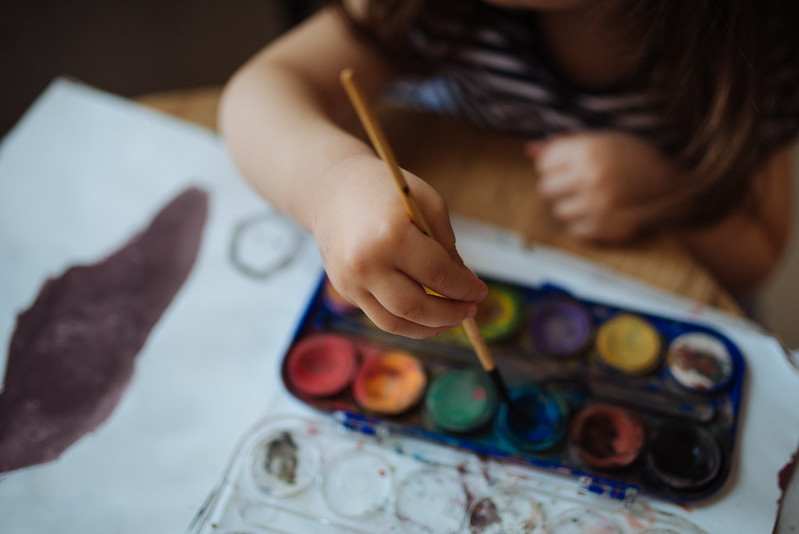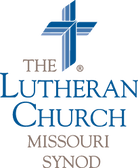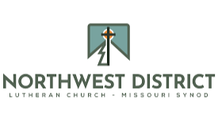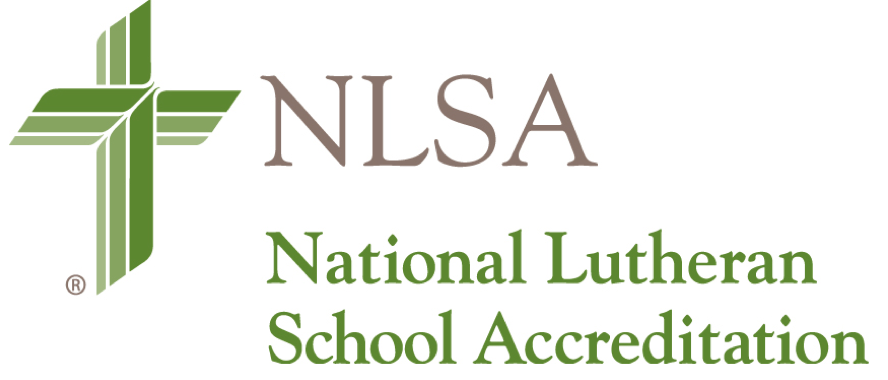In Lower School, our goal is to build on our students’ natural curiosity and eagerness to acquire and master new information by developing a solid foundation of cognitive skills and learning habits through our inquiry-based approach. Lower School learning at Anchor is currently following the principles and practices of the Universal Design for Learning. This approach to curriculum is transdisciplinary in nature, which incorporates a range of subject areas including Art, Language, Literacy, Mathematics, Music, Personal, Social and Physical Education, Social Studies, STEAM, and Design/Computer Technology within thematic units of inquiry. By the end of Grade 5, our Lower School students advance to Upper School with not only a high level of academic and social skills, but also a sincere appreciation and understanding of what it means to be a competent and responsible citizen.
The Anchor Christ-centered Learner Profile is a guide for developing student attributes so that we may nurture the ability of students to use a variety of necessary transdisciplinary skills, including communication, thinking, self-management, research, and social skills. Furthermore, we encourage mindful approaches to resilience, perseverance, inquiry, and being a principled and balanced individual.
Inquiry-Based Learning
At Anchor, we follow an inquiry-based curriculum framework that utilizes the Universal Design for Learning which was designed to meet the needs of students and families from a variety of communities. Our teachers design inquiry-based units which ensure rigorous learning through a range of exciting, active, and meaningful experiences for children. Learning at Anchor takes a Christ-centered approach; helping children reflect on their choices within the framework of the gospel, embracing Christian inclusion, and considering multiple perspectives. Our units of inquiry are based on Contexts for Learning which run from Pre-School to Grade 5. Additionally, our students learn skills and strategies in self-management, critical thinking, communicating, research, and collaborating throughout the curriculum.
Contexts for Learning
The Anchor Christ-centered Learner Profile is a guide for developing student attributes so that we may nurture the ability of students to use a variety of necessary transdisciplinary skills, including communication, thinking, self-management, research, and social skills. Furthermore, we encourage mindful approaches to resilience, perseverance, inquiry, and being a principled and balanced individual.
Inquiry-Based Learning
At Anchor, we follow an inquiry-based curriculum framework that utilizes the Universal Design for Learning which was designed to meet the needs of students and families from a variety of communities. Our teachers design inquiry-based units which ensure rigorous learning through a range of exciting, active, and meaningful experiences for children. Learning at Anchor takes a Christ-centered approach; helping children reflect on their choices within the framework of the gospel, embracing Christian inclusion, and considering multiple perspectives. Our units of inquiry are based on Contexts for Learning which run from Pre-School to Grade 5. Additionally, our students learn skills and strategies in self-management, critical thinking, communicating, research, and collaborating throughout the curriculum.
Contexts for Learning
Who we are
An inquiry into the nature of the self; beliefs and values; personal, physical, mental, social and spiritual health; human relationships, including families, friends, communities, and cultures; rights and responsibilities; what it means to be human.
Where we are in place and time
An inquiry into orientation in place and time; personal histories; homes and journeys; the discoveries, explorations, and migrations of humankind; the relationships between, and the interconnectedness of, individuals and civilizations from local and global perspectives.
How we express ourselves
An inquiry into the ways in which we discover and express ideas, feelings, nature, culture, beliefs, and values; the ways in which we reflect on, extend, and enjoy our creativity; our appreciation of the aesthetic.
How the world works
An inquiry into the natural world and its laws; the interaction between the natural world (physical and biological) and human societies; how humans use their understanding of scientific principles; the impact of scientific and technological advances on society and on the environment.
How we organize ourselves
An inquiry into the interconnectedness of human-made systems and communities; the structure and function of organizations; societal decision-making; economic activities and their impact on humankind and the environment.
Sharing the planet
An inquiry into rights and responsibilities in the struggle to share finite resources with other people and with other living things; communities and the relationships within and between them; access to equal opportunities; peace and conflict resolution.
Curriculum Offerings
Lower School students are actively engaging with their teachers and peers in learning pursuits. They have developed the perspectives, skills, and knowledge to successfully navigate a school day and are able to apply them in new, exciting ways. There is focus on applying their personal preferences and ideas to a community within the scope of Literacy, Social Studies, World Languages, PE, Science, Technology, Engineering, Mathematics, Theology, Performing and Visual Arts. Students are given many opportunities to learn from each other and to share their knowledge in a variety of contexts.
Students will generally follow the courses listed below. As they move through Lower School, they will be able to make some choices about the content and concepts they will learn.
Lower School students are actively engaging with their teachers and peers in learning pursuits. They have developed the perspectives, skills, and knowledge to successfully navigate a school day and are able to apply them in new, exciting ways. There is focus on applying their personal preferences and ideas to a community within the scope of Literacy, Social Studies, World Languages, PE, Science, Technology, Engineering, Mathematics, Theology, Performing and Visual Arts. Students are given many opportunities to learn from each other and to share their knowledge in a variety of contexts.
Students will generally follow the courses listed below. As they move through Lower School, they will be able to make some choices about the content and concepts they will learn.
Language and Literacy
Reading
In Lower School, students are transitioning from the skills of learning to read to those of reading to learn. They are able to access information from both fiction and non-fiction texts with purpose and to deepen their own understanding. They develop attitudes and habits of reading: maximizing reading time, building stamina, selecting books that are based on interest, strategies to decode unknown words, and the ability make meaning from what they have read. Students develop the ability to use context to derive the meaning of new vocabulary, self-correcting when they make errors that detract from meaning, attending to punctuation cues, stopping and thinking about meaning, and reading dialogue with phrasing and expression. Students explore comprehension, fluency, and vocabulary building strategies to enrich their understanding and enjoyment of literature.
Writing
At Anchor, our Language program has been tailor-made to give students a thorough grounding in the main fiction and non-fiction text types and purposes for writing. Language units are progressive and guide students through a scaffolded process of reading, analyzing, writing and editing of texts. Each unit is supported by grammar, vocabulary, and spelling practice.
In Lower School, students are transitioning from the skills of learning to read to those of reading to learn. They are able to access information from both fiction and non-fiction texts with purpose and to deepen their own understanding. They develop attitudes and habits of reading: maximizing reading time, building stamina, selecting books that are based on interest, strategies to decode unknown words, and the ability make meaning from what they have read. Students develop the ability to use context to derive the meaning of new vocabulary, self-correcting when they make errors that detract from meaning, attending to punctuation cues, stopping and thinking about meaning, and reading dialogue with phrasing and expression. Students explore comprehension, fluency, and vocabulary building strategies to enrich their understanding and enjoyment of literature.
Writing
At Anchor, our Language program has been tailor-made to give students a thorough grounding in the main fiction and non-fiction text types and purposes for writing. Language units are progressive and guide students through a scaffolded process of reading, analyzing, writing and editing of texts. Each unit is supported by grammar, vocabulary, and spelling practice.
Social Studies
Students will extend their understanding of human society, focusing on themselves and others within their own community as well as other communities that are distant in time and place. They will investigate how and why groups are organized within communities, and the ways in which communities reflect the cultures and customs of their people. They will recognize the interdependency of systems and their function within local and national communities. Students will increase their awareness of how people influence, and are influenced by, the places in their environment. They will explore the relationship between using our natural resources and protecting them. They will extend their understanding of time, recognizing important events in people’s lives and how the past is recorded and remembered in different ways. They will broaden their understanding of the impact of advances in technology over time and how these advances affect individuals, society, and the environment.
Social Studies Skills
Social Studies Skills
- Formulate and ask questions about places and society in the past, present, and future
- Use and analyze evidence from a variety of historical, geographical, and societal sources
- Orientate in relation to place and time
- Identify roles, rights, and responsibilities in society
- Assess the accuracy, validity, and possible bias of sources
World Language: MANDARINE Chinese
Starting in Grade 4, Lower School students will study Simplified Mandarin Chinese. China is presently the world's most populous country and commands the globe's fastest-growing economy. Approximately one-fifth of the world's population speaks Mandarin Chinese, making it the most spoken language in the world today. It is not only the official language in the People's Republic of China and Taiwan – but it is also widely used throughout Southeast Asian countries such as Singapore, Malaysia, and Indonesia, as well as in Chinese communities around the world. The ability to communicate in Chinese will open students to a world of opportunities no matter what career pathway they take, whether in trade, law, politics, the humanities, science and technology, education, or other fields. Furthermore, through the study of Chinese, students not only acquire language skills but also open themselves to an understanding of China's history and tradition. In return, they know and understand the nuances of a culture that is becoming increasingly influential worldwide, including within the United States.
At Anchor, students will learn Chinese from a native teacher in China through our partner program, MEG Languages, which facilitates instruction through synchronized digital lessons twice weekly. Each class's world language teacher will proctor the session, focusing on classroom management and organization for learning. Students benefit from weekly classes and engage in various language, culture, and art-based activities. The homeroom teacher links the children's Chinese language learning to other curriculum areas by applying transfer knowledge and skills.
At Anchor, students will learn Chinese from a native teacher in China through our partner program, MEG Languages, which facilitates instruction through synchronized digital lessons twice weekly. Each class's world language teacher will proctor the session, focusing on classroom management and organization for learning. Students benefit from weekly classes and engage in various language, culture, and art-based activities. The homeroom teacher links the children's Chinese language learning to other curriculum areas by applying transfer knowledge and skills.
Physical Education
Lower School students attend PE classes twice per week for forty minutes. The Lower School Physical Education program (PE) focuses on the development of concepts, knowledge, attitudes, and skills in the areas of sport, exercise, health, and well-being. Physical Education is more than just student participation in sports and games. It is an important vehicle to equip students with experiences and information that will help them make wise choices and enjoy being active for life. The purpose of the Anchor PE program is to develop a combination of transferable skills promoting physical, intellectual, emotional, and social development.
Physical Education Experiences
Physical Education Experiences
- Individual pursuits, such as athletics and fundamental movement skills
- Movement composition, such as dance and gymnastics
- Learning through games and collaboration
- Adventure challenges, such as cooperative and critical thinking courses
- Health-related fitness
Science
Students will develop their observational skills by using their senses and selected observational tools. They will gather and record observed information in a number of ways, reflecting on their findings to identify patterns, connections, make predictions, and test and refine their ideas with increasing accuracy. Students will explore the way objects and phenomena function, identify parts of a system, and gain an understanding of increasingly complex cause-and-effect relationships. They will examine change over time, recognizing that change may be affected by one or more variables. They will examine how products and tools have been developed through the application of science concepts. They will be aware of different perspectives and ways of organizing the world, and be able to consider how these views and customs may have been formulated. Students will consider ethical issues in science-related contexts and use their learning in science to plan thoughtful and realistic action in order to improve their welfare and that of other living things and the environment. Students will communicate their ideas or provide explanations using their own scientific experience and that of others.
Technology and Engineering
Lower School students explore science, technology, engineering, art, and mathematics in the Anchor STEAM Lab through hands-on pursuits. Real-world approaches are used to guide student inquiry, critical thinking, and design.
Visual ARts
Lower School students have Art class at minimum once per week. The Visual Arts program at Anchor strives not only to develop each child's artistic skills, but also their understanding and appreciation of art.
MathEMATICS
In Mathematics, students engage in productive activities and conversation about mathematical ideas, including articulating their solution strategies and understanding the ideas of others. Students solve mathematical problems that are based in real world contexts, working individually, in small groups, and with the entire class.
Mathematics Skills
Mathematics Skills
- Developing understanding of math fact strategies for addition, subtraction, multiplication, and division
- Developing understanding of fractions, especially unit fractions
- Developing understanding of the structure of geometric shapes
- Describing and analyzing patterns in math and in the real world
Performing Arts
Students in Grades K-5 attend Music or Drama class twice per week. Music and Drama involve all areas of learning: the cognitive, which focuses on the acquisition of knowledge about music and drama, the psychomotor, which focuses on the development of skills in music and drama, and the affective, which includes the appreciation of, and sensitivity to, music and drama.
Theology
The characteristics of Christian spirituality, its roots in scripture, the balance between contemplation and action, its communal dimension, and its attitude to the world, are analyzed through the study of a selection of men and women whose lives exemplify various aspects of Christian spirituality over the past two thousand years. The course examines notions of transcendence and immanence, individuality and collectivity, nature and the divine.




